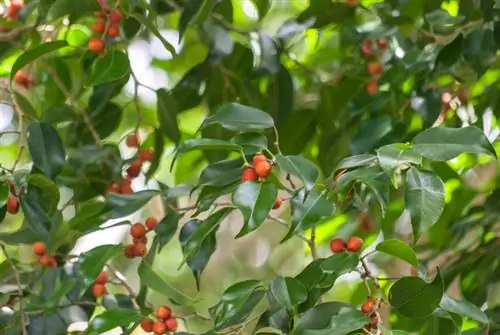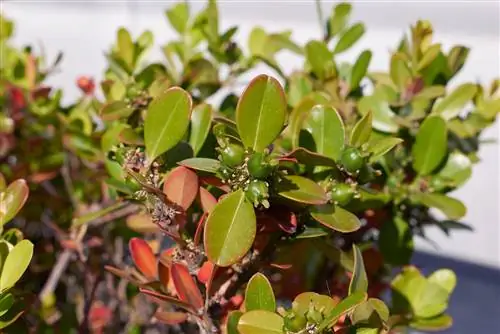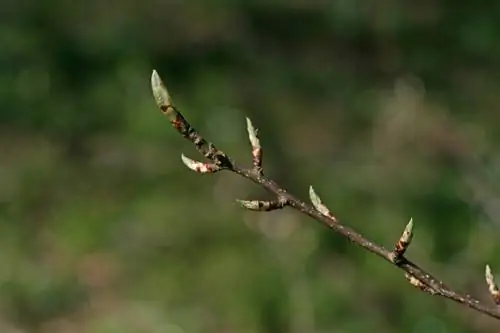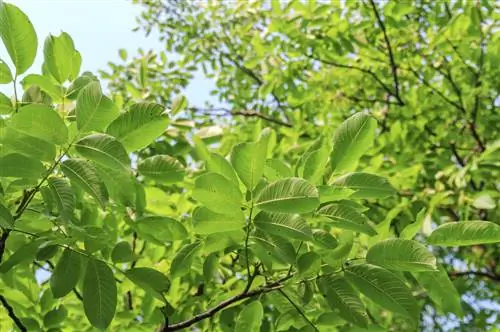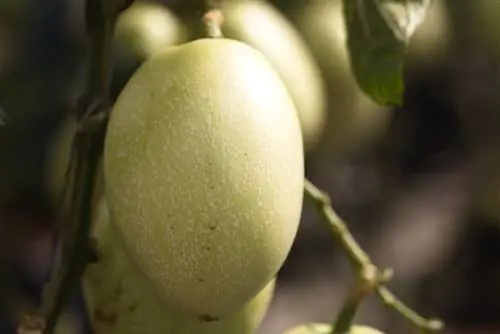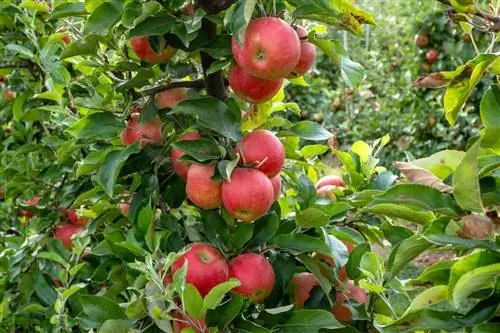- Author admin [email protected].
- Public 2023-12-16 16:46.
- Last modified 2025-01-23 11:21.
Among the more than 800 species of figs, the Ficus benjamina has emerged as a decorative and easy-care foliage plant. Hobby gardeners look longingly for the orange stone fruits. Read here when your birch fig fruits and what the fruits are about.
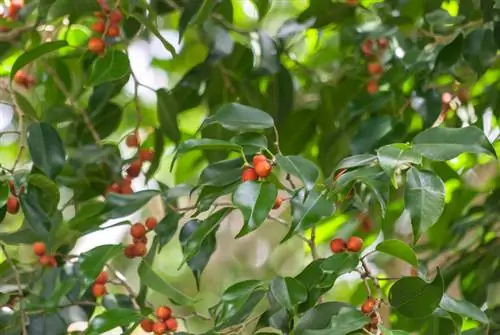
Fruits of Ficus Benjamini: Can you eat them?
Ficus Benjamina, also called birch fig, produces orange drupes in tropical areas. However, there are no natural pollinators in Central Europe, which is why the plant does not develop fruit here. The fruits should not be eaten as they contain slightly toxic ingredients.
Spherical flowers look like fruits
Under ideal conditions with perfect care in the optimal location, a Ficus benjamina can be encouraged to bloom. As a rule, the tropical green plant takes between 5 and 10 years before it delights us with its first flowering period. These characteristics characterize a Benjamini flower:
- Flowering time is between August and November
- Spherical inflorescences develop in the leaf axils
- One inflorescence is shiny green with a diameter of 1.5 cm
- Male and female flowers grow separately
What at first glance seems like a fruit is actually a flower on a Benjamini. This can be a male flower with pollen, a finished flower or a sterile female flower. The male flowers can be recognized by free sepals and a stamen on a short stalk. Female flowers grow sepals with sepals and a round ovary.
No fruits without natural pollinators
The birch fig bears fruit in its tropical and subtropical habitats because special pollinator insects are native there. These know how to get into the tiny opening of a female, fertile flower in order to transfer the pollen there. Since there are no pollinators in Central Europe to visit a birch fig on the balcony, you will look in vain for the orange drupes.
Manual fertilization, as is possible with other houseplants, has no chance of success on a Ficus benjamina. In the absence of ripe fruits with germinable seeds, the propagation of a birch fig is limited to the cutting method.
Tip
If you pass a fruit-bearing birch fig on vacation, you should refrain from snacking on the small, ripe stone fruits. In contrast to the real fig (Ficus carica), the slightly toxic ingredients of a birch fig (Ficus benjamina) will have an unpleasant impact on your stomach.

